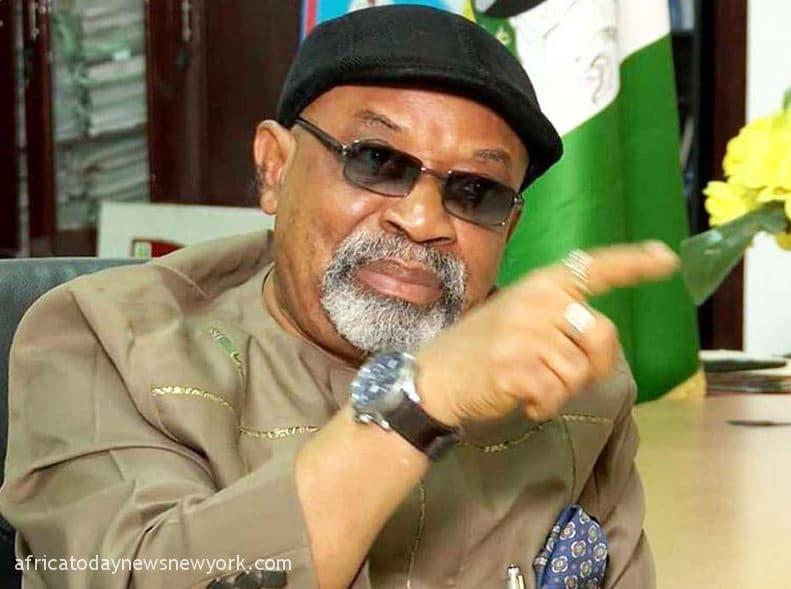Nigeria’s Minister of Labour and Employment, Chris Ngige on Tuesday disclosed that he adopted voluntary conciliation for the resolution of the strike by the Academic Staff Union of Universities (ASUU), instead of arbitration, simply because he didn’t want to delay the resolution process.
The minister said he could have transmitted the matter to the Industrial Arbitration Panel (IAP) or the National Industrial Court of Nigeria (NICN) but used his discretion to weigh the situation to know if it would cause more delay in the resolution of the dispute in a court process.
Ngige disclosed while fielding questions from newsmen at a joint workshop on International Labour Standards and Dispute Resolutions, organised by the IAP in collaboration with the International Labour Organisation (ILO) in Abuja.
He recalled that ASUU embarked on strike on February 14 and he started voluntary conciliation on February 22 and subsequently, on March 1.
Read Also: How FG Is Investing Billions Yearly To Fight Poverty – Ngige
According to the minister, by the second meeting, most of the issues arising from the 2020 Memorandum of Action (MoA) signed between ASUU and the Ministry of Education with other government agencies involved, were conciliated, leaving out only two.
Ngige said: “The two outstanding issues were the conditions of service, which, according to the 2009 agreement, would be reviewed every four years. The last review was in 2013 and we started the review in 2018 under Wale Babalakin as chairman of the renegotiation committee. We could not conclude because Babalakin left.
‘A new committee, headed by Munzali came. Munzali finished his work and put in his report at the Federal Ministry of Education. All these committees, including the previous Onosode committee, were all internal committees of the Ministry of Education.
‘They discuss with the unions and give them offers and counter offers vis-a-vis what they have said. Once the committees finished, their products are sent up.
‘The major issue here is salary and wage review. That is where they are before ASUU embarked on strike.’
Ngige said once a strike occurs, it triggers the content of the Trade Dispute Act (TDA) on how to resolve the industrial action.
He said the Ministry of Education was still handling the matter because he transmitted it back to them.
‘If a party wants us to transmit a matter back to them to have a second look, you assist them. That is what you call voluntary conciliation. It is voluntary because if I apprehend and bring all the parties to the negotiation table and a party requests that I should take the matter to NICN, I will do so.’
Africa Today News, New York reports that earlier, Ngige described the workshop as one of the reforms ongoing in his ministry as hitherto, some arbitrators have not fully understood the tenets of IAP and were handicapped in discharging their duties.

